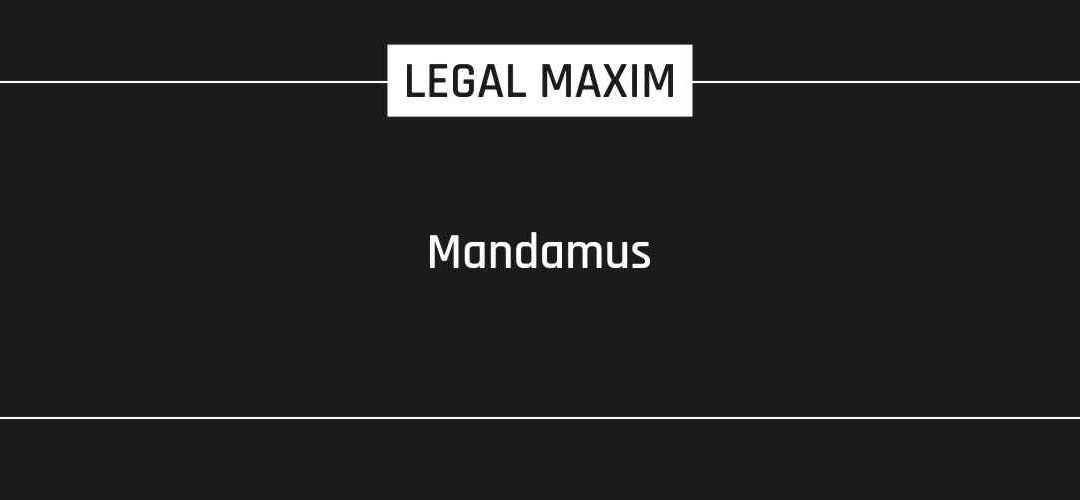Literal Meaning
We command/ we mandate
Origin
The writ of mandamus was first used by English courts in the early seventeenth century. It has been originated from the ‘Latin’ language.
Explanation
Article 32 and 226 of the Indian Constitution gives power to the Supreme Court and High Court, respectively, to issue writs in case of breach of fundamental rights of any citizen by the state. These writs grant power to the Judiciary to control the administrative actions and prevent any kind of arbitrary use of power and discretion.
A writ of mandamus is issued by a judge at the behest of a plaintiff, requiring someone to undertake a task which they are constitutionally obligated to execute. The above writ can also be provided where a higher court’s jurisdiction is needed to compel a lower court or government entity to perform an obligation to enforce the law or redress a misuse of power. The writ of Mandamus may be used to direct a job to be done, or it can allow an operation to be stopped in certain situations. Besides, a supreme court provides the writ to force a lower court or a government official to fulfill compulsory or strictly ministerial duties properly. The writ is not usually issued unless there is an appropriate recourse open, and it is rarely given unless the person to which it will be applied has the moral power either to execute the required act or to abstain.
According to the legal definition of Mandamus, the writ orders a person, a governmental entity, an administrative tribunal, a quasi-judicial institution or a court to carry out a specific action, to render a determination needed by the agency, or over which the agency has jurisdiction, under the law. This is granted not as a matter of statute but rather at the court’s discretion, which is thus primarily governed by fair standards.
Illustration
If a party to a case is dissatisfied with some decision of the trial court, the party may appeal the decision to a higher court with a petition for a writ of mandamus before the trial proceeds. The order will be issued only in exceptional circumstances.
Case Laws
The Supreme Court Kerr v. United States District Court, upheld the denial of a writ of mandamus sought by prison officials to prevent the district court from compelling them to turn over personnel and inmate files to seven prisoners who had sued the prison over alleged constitutional violations. The officials argued that turning over the records would compromise prison communications and confidentiality.
In Praga Tools Corporation v. Shri C.A. Imanual & Ors., the Supreme Court held that “A mandamus can issue, for instance, to an official or a society to compel him to carry out the terms of the statute under or by which the society is constituted or governed and also to companies or corporations to carry out duties placed on them by the statutes authorizing their undertakings. A mandamus would also lie against a company constituted by a statute to fulfill public responsibilities.
In Chiranjit Lal Chowdhuri vs The Union Of India And Others, the Supreme Court held that a writ of mandamus can be prayed for, for enforcement of statutory duties or to compel a person holding a public office to do or forbear from doing something which is incumbent upon him to do or forbear from doing under the provisions of any law.
